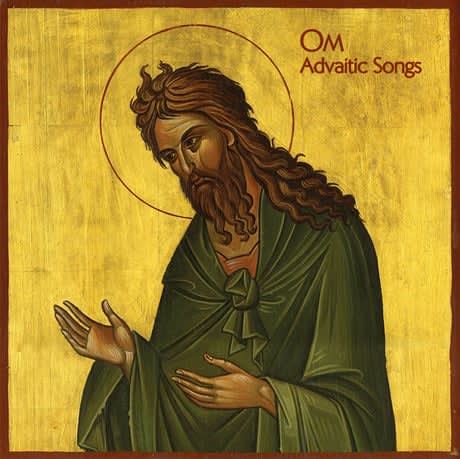In one of the most interesting essays on music ever published, Blues People: Negro Music in White America, Amiri Baraka follows ''the path the slave took to citizenship'' and does so through an exploration of the history of African American music from its ancestral roots to the slave ships, cotton fields and American ghettos. By doing so, Baraka highlighted fundamental differences that perhaps still constitute the atomic importance of subtleties in oriental music. Indeed, the differences in terms of scales, patterns and structures did not only cause reluctant white people to not call it music, but literally opened new dimensions in sounds that channelled an elusive quality that only the trained ear could figure out.
The oriental influence on occidental music is far from being a recent fad — the aforementioned essay is copiously quoted in Jean-Luc Godard's Sympathy for the Devil — but when embraced in a fully frontal way using "occidental" instruments, the result can be worth attention.
Lungfish's main man Daniel Higgs clearly has an understanding of music that goes above and beyond the symmetrically forged patterns of contemporary pop music. Higgs's playing combines the wise use of drones, octaves and percussive banjo plucks, as an open canvas for his lyrics that are either declaimed, sung or hushed sporadically.
The inherent Middle Eastern quality of his meditative performance at Il Motore had an uplifting might that unfortunately kept being undercut by, first, the fact that a large majority of the crowd did not seem to give a toss about a bearded bard in an oriental jacket. And second, Higgs banjo would not stay in tune, which brings us back to number one, because the Dischord signee (yes, yes, Dischord doesn't have contracts, hence, he can't be a signee) had to politely tell people to lower it down a bit, so he could ultimately finish his set that judiciously did not culminate in an über-theatrical meditative drone.
One could have thought that amped up by a third member — Lichens' Robert A.A. Lowe — OM would have hit the brown note during their opening song. Although Al Cisneros's Rickenbacker did command respect as soon as the ex-Sleep bass player hit the fifth string, the band clearly decided to put their compositional details front and centre rather than hit the fuzz pedal and have the sold-out crowd shake a (back-patched/Chrome-bagged) tail feather.
Moving away from the fuzzed-out riffs, one of the most remarkable details of OM's set was Lowe's use of what seemed to be an octave pedal to replicate the oriental violin sound (think mid-1950s Egyptian chanteuse, not contemporary Apache Indian lookalikes). All in all, nothing to make Hassan-i Sabbah wet his pants, but almost enough to make his ghost pay attention.
The oriental influence on occidental music is far from being a recent fad — the aforementioned essay is copiously quoted in Jean-Luc Godard's Sympathy for the Devil — but when embraced in a fully frontal way using "occidental" instruments, the result can be worth attention.
Lungfish's main man Daniel Higgs clearly has an understanding of music that goes above and beyond the symmetrically forged patterns of contemporary pop music. Higgs's playing combines the wise use of drones, octaves and percussive banjo plucks, as an open canvas for his lyrics that are either declaimed, sung or hushed sporadically.
The inherent Middle Eastern quality of his meditative performance at Il Motore had an uplifting might that unfortunately kept being undercut by, first, the fact that a large majority of the crowd did not seem to give a toss about a bearded bard in an oriental jacket. And second, Higgs banjo would not stay in tune, which brings us back to number one, because the Dischord signee (yes, yes, Dischord doesn't have contracts, hence, he can't be a signee) had to politely tell people to lower it down a bit, so he could ultimately finish his set that judiciously did not culminate in an über-theatrical meditative drone.
One could have thought that amped up by a third member — Lichens' Robert A.A. Lowe — OM would have hit the brown note during their opening song. Although Al Cisneros's Rickenbacker did command respect as soon as the ex-Sleep bass player hit the fifth string, the band clearly decided to put their compositional details front and centre rather than hit the fuzz pedal and have the sold-out crowd shake a (back-patched/Chrome-bagged) tail feather.
Moving away from the fuzzed-out riffs, one of the most remarkable details of OM's set was Lowe's use of what seemed to be an octave pedal to replicate the oriental violin sound (think mid-1950s Egyptian chanteuse, not contemporary Apache Indian lookalikes). All in all, nothing to make Hassan-i Sabbah wet his pants, but almost enough to make his ghost pay attention.
